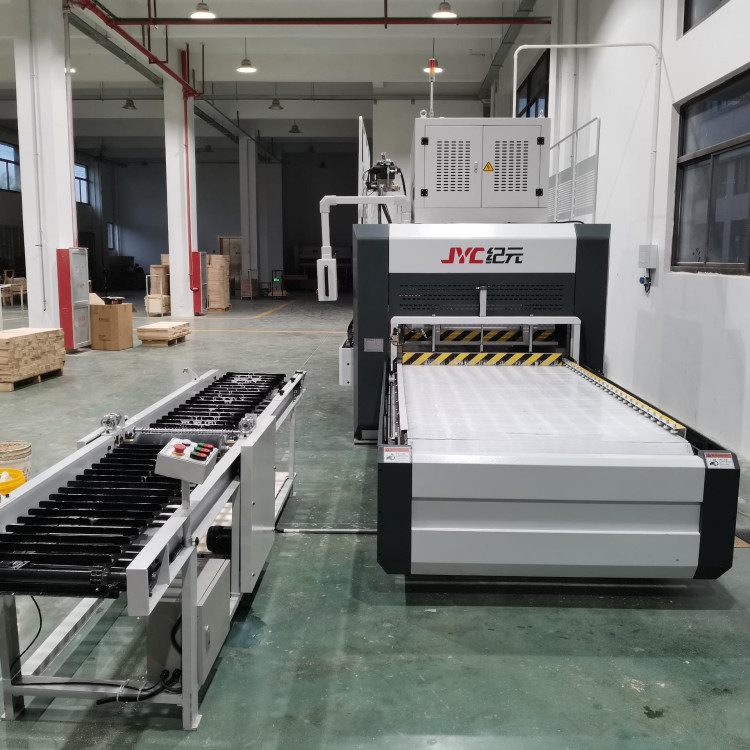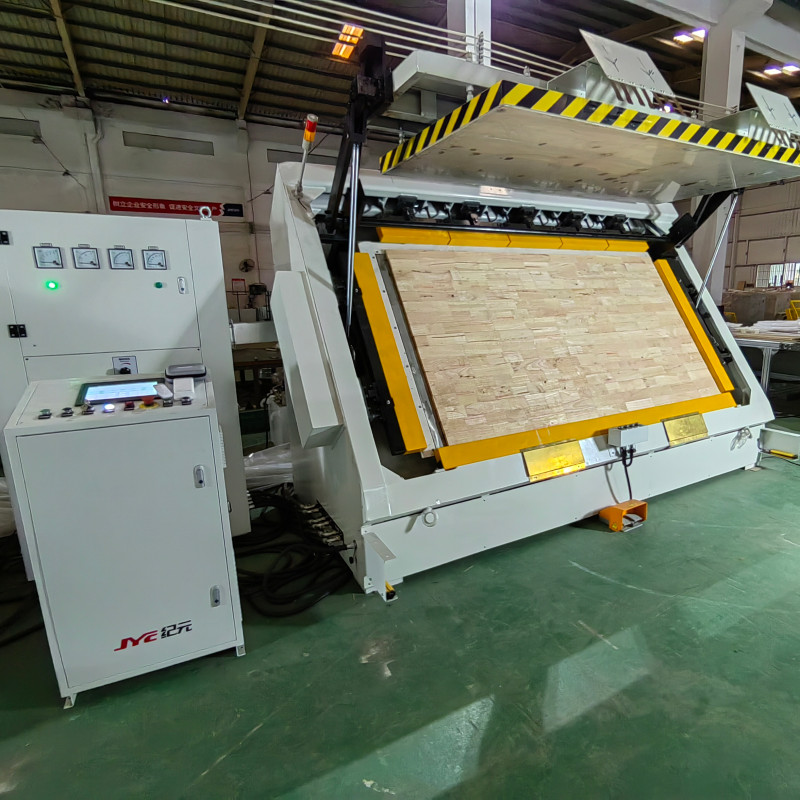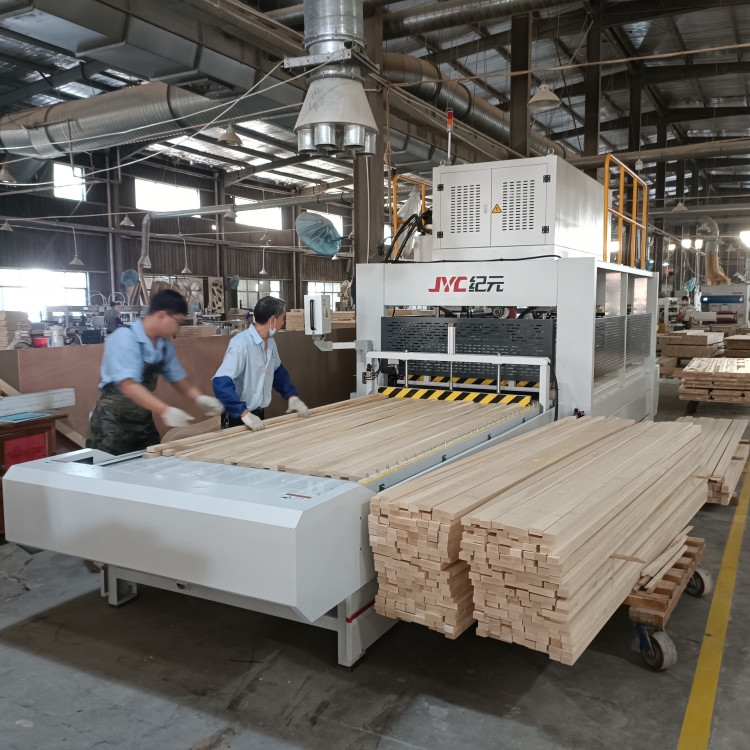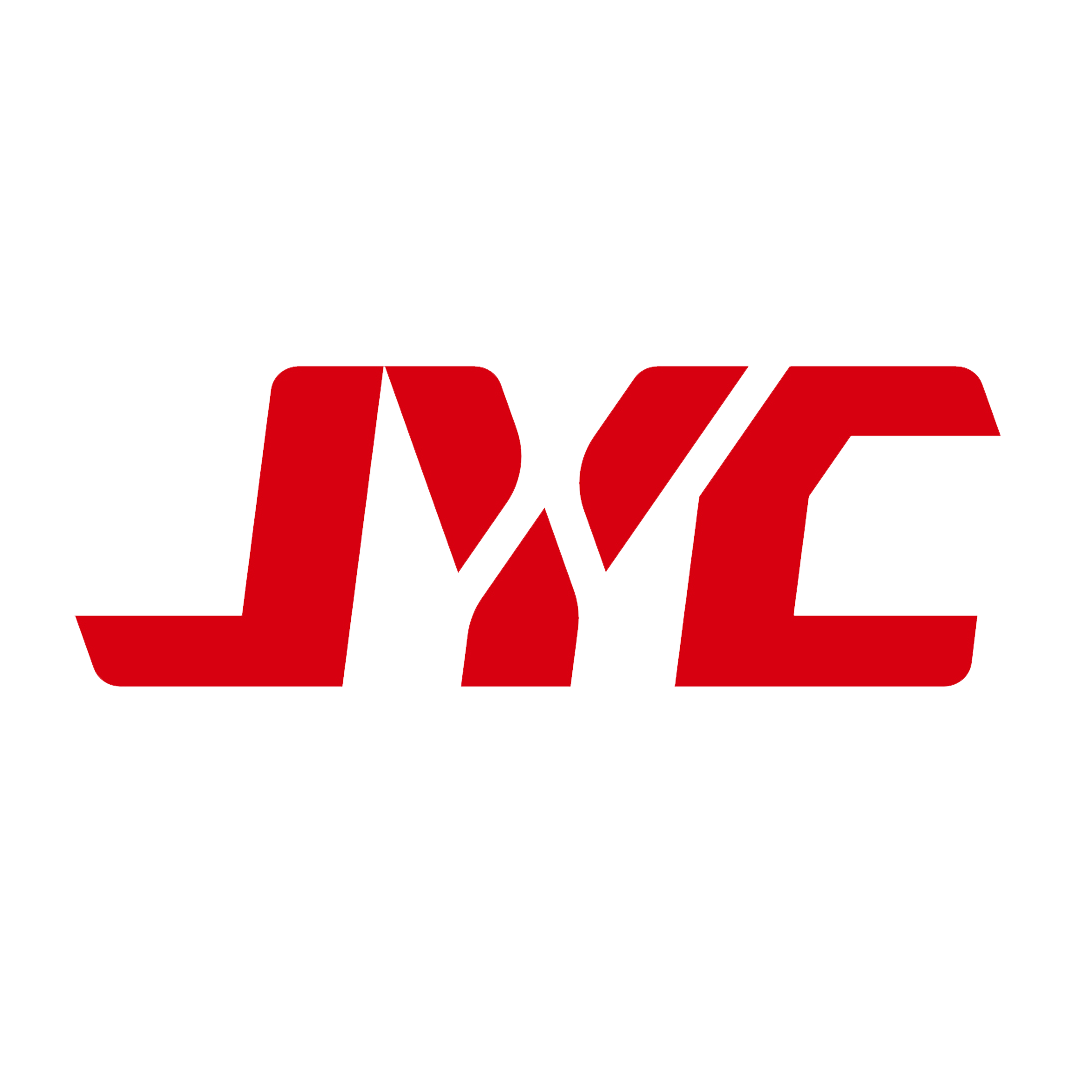
Why Isn’t Your Workshop Using High Frequency Wood Board Joining Machine Yet?
2025-04-23 16:25In the fast-evolving woodworking industry, staying ahead requires embracing innovations that boost productivity, reduce costs, and enhance product quality. High frequency wood panel pressing machines have emerged as a revolutionary solution, but why aren’t more workshops adopting this technology? Let’s explore how these machines are redefining modern woodworking.

1. What Makes High Frequency Wood Panel Joining Machine Unique?
High frequency wood board joining machine utilizes electromagnetic waves to generate heat through molecular friction in adhesives or moisture, enabling rapid glue curing. Unlike traditional methods, this technology ensures uniform heating and minimal energy loss, completing a pressing cycle in just 1–3 minutes.
Key advantages include:
Energy Efficiency: Consuming only 15–30 kWh per cubic meter, HFPPMs cut electricity costs significantly.
Precision and Stability: Vertical and lateral pressure systems ensure flat, seamless joints, while PLC controls automate processes for consistent results.
Versatility: Suitable for thin boards (as thin as 3–7 mm), bamboo boards joining, and materials like solid wood, MDF.
2. Applications Across Industries
From furniture manufacturing to door production, HF wood board joining machine excel in diverse scenarios:
Furniture and Cabinetry: Ideal for tabletops panels, cabinet doors core panel, and chair seats panels, especially with automated glue application systems that reduce adhesive use by 50%.
Bamboo and Composite Materials: Advanced models like the GJM-QI-35A-JY support pressure adjustments for bamboo board joining, achieving a daily output of hundreds of panels.

Integrated Timber and Doors: Efficiently handles edge banding, L-shaped moldings, and core panel assembly.
3. Market Trends and Future Prospects
The global High Frequency Wood Panel Joining Machine market is projected to grow steadily, driven by rising demand for eco-friendly and high-precision wood products. China, a key player, has seen a surge in industrial adoption, JYC leading innovations in intelligent control systems and compact designs tailored for SMEs.
4. Why Choose High Frequency Technology?
Cost Savings: Reduced glue consumption and labor dependency translate to lower operational costs.
Enhanced Quality: High strength for the glue joint after High Frequency heating.
Sustainability: Energy-efficient processes align with green manufacturing goals.

Conclusion: Step into the Future of Woodworking
High frequency wood board joining machine isn’t just a tool—it’s a strategic upgrade for workshops aiming to thrive in a competitive market. With models ranging from compact units like GJB2513-L56-JY to fully automated systems with AI-driven controls(Looking forward to the future), now is the time to integrate this technology.
